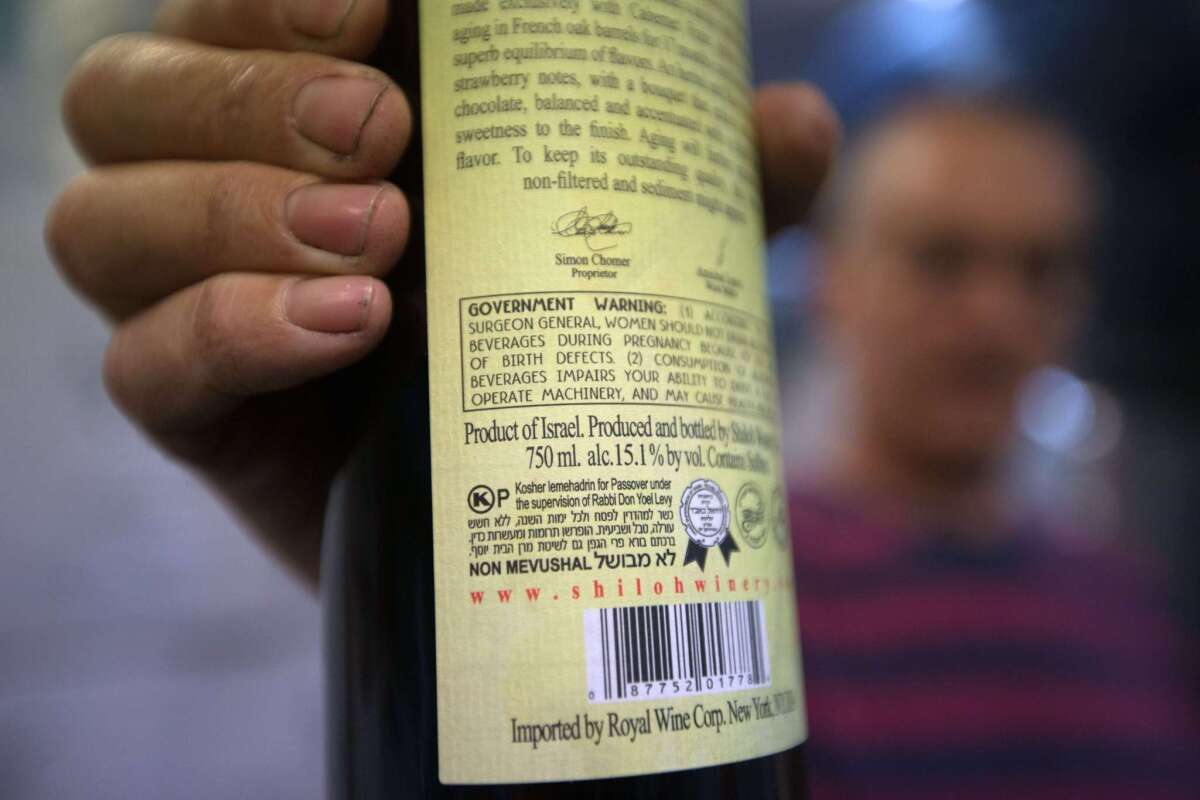A diplomatic brouhaha erupts over ‘Made in Israel’ labels

Amichai Luria presents a bottle of his wine, used mainly for export, at the Shilo winery in the Jewish settlement of Shilo in the West Bank on Nov. 12.
- Share via
Reporting from Jerusalem — Two weeks after the European Union approved guidelines for labeling goods from Israeli settlements, Israeli Prime Minister Benjamin Netanyahu instructed the Foreign Ministry to suspend diplomatic contacts with EU institutions on matters related to the peace process with the Palestinians.
According to a statement from the ministry Sunday, Netanyahu ordered a reassessment of EU institutions’ involvement in the diplomatic process and a halt of all related contacts until it is completed.
The ministry stressed that Israel will continue to have diplomatic contacts with individual countries such as Germany, Britain and France, and that the ban applies only to the European Union institutions and their representatives.
Earlier this month, the EU adopted guidelines for marking goods from the West Bank and Golan Heights sold in Europe separately from goods from Israel, and excluding settlement products from the preferential tariffs Israeli goods enjoy under the mutual trade agreements.
Although European officials insisted the move was technical rather than political, it infuriated Netanyahu, who said Europe should be “ashamed” of the “immoral decision.”
Sunday’s announcement comes as the European Union seeks to increase its role in advancing renewed efforts to resolve the Israeli-Palestinian conflict. It also comes just ahead of the U.N. climate conference in France, where Netanyahu is set to hold talks with several international leaders, including French President Francois Hollande. He will also meet with Russian President Vladimir Putin for continued coordination regarding military activities in the increasingly crowded airspace on Israel’s northern borders.
While Israel’s diplomatic relations with Europe and other countries are frequently strained over the settlements and Palestinian issue, practical mutual interests abound on a wide range of issues, including Middle East crises increasingly affecting the international community.
In its more immediate region, Israel is moving to tighten bilateral relations with Greece and Cyprus, its closest European neighbors, and last week announced finalizing the opening of a mission in Abu Dhabi, capital of the United Arab Emirates.
Sobelman is a special correspondent.
ALSO
19 nations to double their investment in renewable energy
Obama pays silent tribute to victims of Paris attacks
A capital under siege: Paris ramps up security for climate talks
More to Read
Sign up for Essential California
The most important California stories and recommendations in your inbox every morning.
You may occasionally receive promotional content from the Los Angeles Times.










